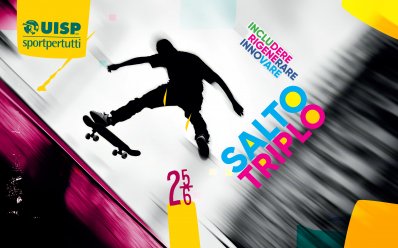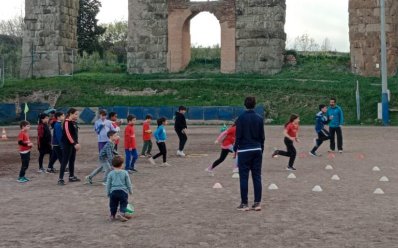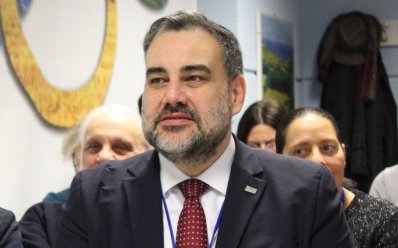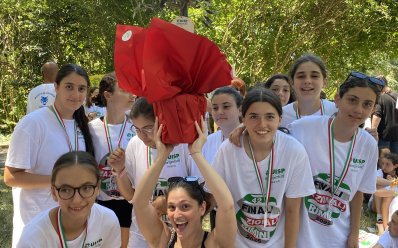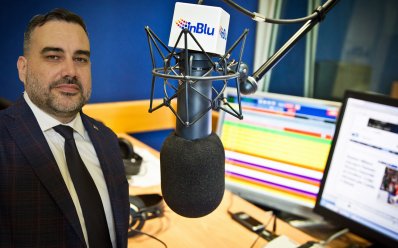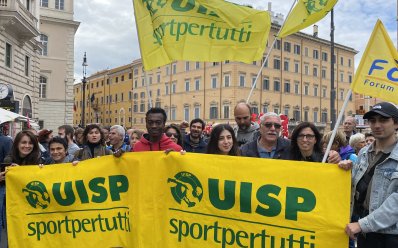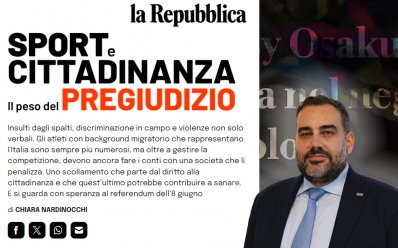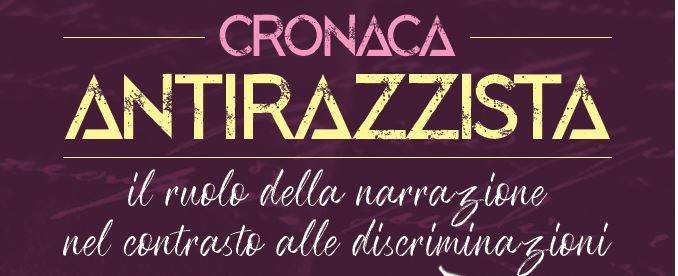MIMoSA
Migrants’ Inclusion Model of Sport for All
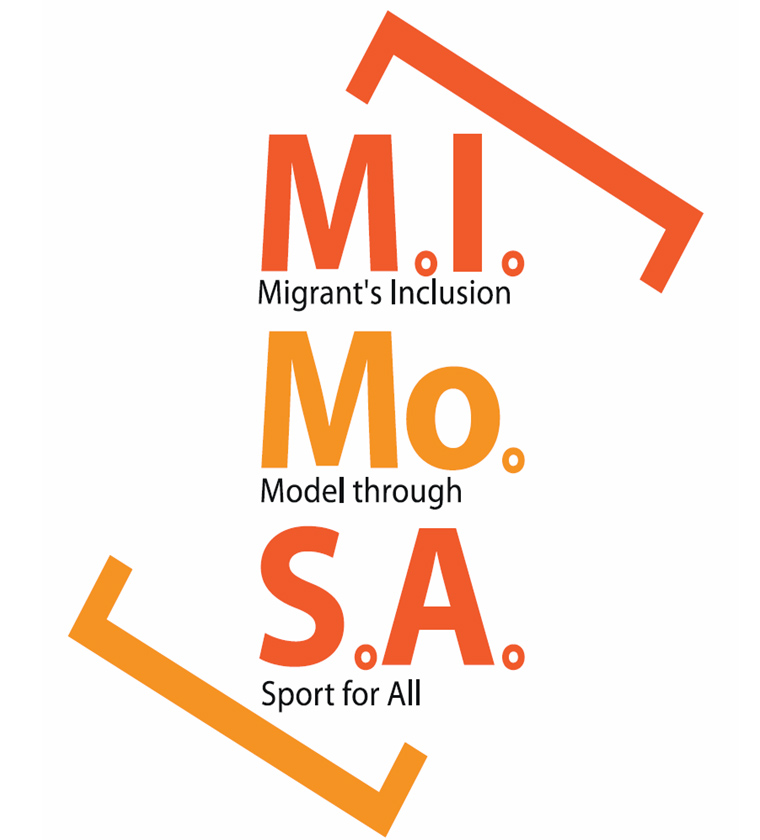
Duration: 15 months: 1st March 2011 - 30th April 2012
Applicant / Coordinator: UISP – Unione Italiana Sport Per tutti (Italy)
Partners:
- VIDC - Vienna Institute for International Dialogue and Cooperation (Austria);
- ISCA – International Sport and Culture Association (Denmark);
- DTB - Deutscher Turner-Bund (Germany);
- RDYC - Fundación Red Deporte Y Cooperación (Spain);
- Foundation Policy Center for Roma and Minorities (Romania);
- Fondazione 20 Marzo 2006 - post Olympic (Italy);
- UNIMOL - Università del Molise (Italy)
- ACSA - Taller de Antropología y Ciencias Sociales Aplicadas (Spain);
- Province of Gorizia (Italy);
- Dirección General de Coordinación de Políticas Migratorias, Consejería de Empleo, Junta de Andalucia (Spain);
- Centro Regionale Contro le Discriminazioni del Servizio Politiche per l’Accoglienza e l’Integrazione Sociale della Regione Emilia-Romagna (Italy);
- Regione Toscana (Italy);
- UNAR - Ufficio Nazionale Antidiscirminazioni Razziali (Italy).
Funding body: UE Preparatory Action in the Field of Sport – EAC-2010-1325

SUMMARY:
Sport has been recognised by European Union as a tool of social inclusion, education and socialization for all, throughout his document (White Paper on Sport). However, many legal and cultural constraints limit the access of migrants, refugees and other groups to sport.
Among obstacles that migrants face in acceding to sport, the limited financial resources and the lack of information on sport organizations, sport facilities and their location, as well as the requirement for acceding to sport activities linked to skills and performance. Limited or lack of cooperation among sport organisations, migrant organisations and national and local authorities is a challenge if to effectively address the above mentioned problems.
In this frame, Sport for All, based on social and personal relationships between individuals rather than skills and performance, offers a mean for stimulating active citizenship, improving inter-ethnic and inter-communitarian dialogue and facilitating the social inclusion of migrants. There is also a need for the empowerment of migrants directly involved in sports organisations, clubs, local or national bodies dealing with sports issues, in order to promote their participation in the organization and management of sport activities and their access to leadership position in the above mentioned entities.
OBJECTIVES:
Mimosa intend to reach the following goals:
- to build and strengthen a transnational network – at European level – between 3 different level of actors involved in the field of sports (sport associations, national and local authorities, universities), with the purpose of sharing a methodology as a common basis for the future work of the network;
- to elaborate, following a process of in-depth exchange of experiences and assessment of best practices, a model of social inclusion and empowerment for migrants and other groups (refugees, asylum seekers, Roma, women refugees), based on sports related initiatives, both mainstream and marginal. In fact, the 2010 call for proposals points out that the exchange of best practices in the field of sports is mainly focused on certain mainstream sports or specific groups, as young immigrants, and encourages a broader approach, taking into account a wide range of sports and targeting different groups. In this framework, MIMoSA project has a set of innovative features, giving special attention to marginal sport disciplines, particularly ones from the migrants' countries of origin, and targeting different groups that meet more integration problems, among which refugees, asylum seekers, Roma and women refugees. Retracing the experience of migrants’ inclusion through football, the project will test the effectiveness of the proposed model within a wider range of sports, as cricket and baseball (through the examination of best practices), and will carry out an experimental component, through social research studies, to test out touch rugby and dodge ball as potential and more suitable means for the inclusion of Roma and women refugees. The project aims to investigate and document the main factors that limit the migrants' access to sport, and to provide possible solutions, centralized in an ethics code, and a set of guidelines for sport associations and for local authorities. Project's long term objectives are:
- to promote social inclusion of migrants and other groups through sport;
- to promote the empowerment of migrants and other groups in sports.
PROJECT ACTIONS:
In order to actively involve all partners, two committee were set up: the steering committee - composed of one member from each partner, and in charge of the coordination of the networking and of the collection of materials to be exchanged, and the scientific committee – composed of one member from sport associations/clubs, one from universities, one from local authorities and the project coordinator. With the support of the steering committee, the scientific committee was in charge of the elaboration of the working methodology, as well as the review of the received materials. This committee was also in charge of putting together the social research study, designing the scientific model and tools needed.
Phase A – elaboration:
In order to elaborate the model, partners shared materials and experiences and assessed best practices. Partners developped a common system of impact indicators, based on the advice and leadership of the involved universities.
A social research study, based on qualitative analysis, was carried out in Italy and in Spain among target groups of Roma and women refugees, with the aim of adapting the model to target groups facing special needs. Within the social research component, sport association organized sport activity days to allow researchers to test out the experimental component of the model, through participant observations. More in details:
A.1. Exchange of experiences and assessment of best practices:
1.1. E-mailing and teleconferences;
1.2. Creation and updating of an on-line database (web site);
1.3. Organization of 2 international meetings for NGOs (Denmark, Romania). Members from the three levels of partners, experts and guests from target groups will take part in the meetings;
1.4. Organization of 2 international meetings for local institutions (Italy, Spain).
A.2. Carrying out social research studies in Italy and Spain:
2.1.Conduction of interviews, play roles, focus groups;
2.2. Organization of sport activity days.
A.3. Production of tools, information and training material. As output of the research work, scientific committee produced:
3.1. The ethics and corporate responsibility code addressed to sport associations/clubs for subscription, indicating a first commitment toward the implementation of the guidelines. The web site will allow on line subscription;
3.2. Guidelines for sport associations;
3.3. Guidelines for local institutions;
3.4. Information material in order to disseminate the model to a wide public;
3.5. Training material.
Phase B – promotion:
In order to reach the general public and the public authorities focusing on the topic and to disseminate the project’s results, tools and other materials (such as web site, ethics code and guidelines), the following events have been organized:
- B.1. No. 6 press conferences;
- B.2. The final conference (Rome, Italy).
Phase C – implementation:
In order to promote the implementation of the model within local authorities and sport associations/clubs, partners will carry out the following activities:
- C.1. Lobbying on local authorities;
- C.2, Organisation of 6 training workshops within partner associations, addressed to managers and staff working in the field of social inclusion and multicultural issues.
Fore more info: progettazione@uisp.it
Ufficio progetti - Sede Uisp Nazionale
L.go Nino Franchellucci, 73 00155 Roma
Tel.: +39.06.43984350 - 345 - 346
Fax: 06.43984320
e-mail: progetti@uisp.it

